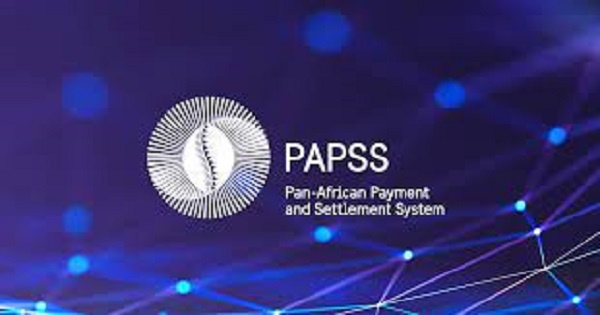The Ghana Stock Exchange (GSE) – through its membership with the African Securities Exchanges Association (ASEA) – has signed a memorandum of understanding (MoU) with the Pan African Payments and Settlement System (PAPSS) to collaborate on ways to enhance the payment process for cross-border securities transactions in Africa.
The MoU signing, which took place during ASEA’s 73rd Executive Committee Meeting on April 14, 2023 – alongside the 11th Building Africa Financial Markets (BAFM) seminar hosted by the Zimbabwe Stock Exchange (ZSE) – is anticipated to yield numerous advantages, including capital markets integration across the continent.
PAPSS is a financial market infrastructure that is supported by the African Union Commission, African Export-Import Bank (Afreximbank) and the Africa Continental Free Trade Area (AfCFTA) secretariat. The platform’s primary objective is to promote trade and economic integration across Africa by offering a dependable, secure and efficient method of settling cross-border transactions.
Commenting on the MoU, the president of ASEA, Thapelo Tsheole said: “Signing the MoU between ASEA and PAPSS marks a significant step toward enhancing the efficiency and liquidity of African securities exchanges. We look forward to working closely with PAPSS to identify potential ways of easing payments and settlements as we seek to facilitate cross-border trading of securities among member exchanges. In the coming weeks, we will hold consultative meetings to establish an implementation plan for this collaboration”.
Mr. Tsheole emphasised that PAPSS could be instrumental to the African Exchanges Linkage Project, which aims to facilitate cross-border trading. ASEA, with its nine exchanges and a market cap of US$1.5trillion, provides an ideal umbrella for PAPSS to achieve its objectives.
The MoU’s timing has been described as “especially relevant” considering the recent introduction of ASEA’s African Exchanges Linkage Project (AELP) in December 2022, which aims to make cross-border trading more accessible.
With assistance from the African Development Bank (AfDB), ASEA has made notable advancements in connecting member exchanges across the continent through the AELP. The first phase has covered seven exchanges and 14 countries, and they plan to broaden this to 15 exchanges throughout 22 countries.
Offering their thoughts on the MoU, analysts described the partnership as a significant development for the country’s capital market.
A Senior Research Analyst at Tesah Capital, Joshua Adagbe, believes that by integrating PAPSS into the cross-border capital market framework, issues with currency convertibility are expected to be resolved while costs, processing and settlement times will be shortened. This will foster access to capital and help drive economic growth on the continent.
“It is a step in the right direction; it is one of the things we have been looking for since implementation of the AfCFTA. Integration with PAPSS will bring more efficiency to the Ghana Stock Exchange and attract more foreign investment. We expect to see an increase in trading activity and liquidity in the market,” he said.
“For Ghanaians seeking to invest in foreign markets, utilising the PAPSS platform will lead to more efficient and cost-effective payment and settlement of transactions. Imagine, as a Ghanaian, I want to buy stocks in Nigeria or another African country; I would have been looking at the exchange rate. Now, payments will be made in cedis and settlement will occur in the currency of that country through banks of both countries,” he added.
Similarly, president of the chapter of Chartered Financial Analysts (CFA-Ghana), Nana Wiafe Boamah, is optimistic that following periods of extended talk and planning, the move will among other things reduce incidents of limited liquidity on the Accra bourse.
“We know that our market has been historically plagued by low levels of liquidity as many of the institutional investors typically buy and hold; with the coming into play of this partnership, we should see more listings locally. And with a more mature investor base, trade volumes should benefit – and liquidity as well. When there is an IPO, issuers will know that they are accessing a vast base beyond the country,” he explained.
“This partnership will help to bridge the gap between Ghana and other African countries’ capital markets, which is essential for economic growth and development,” Mr. Boamah added.
The GSE has seen a rebound over the last eight weeks as its benchmark composite index (GSE-CI) – which measures the performance of listed stocks – ended the third trading week in April at +9.02 percent, compared to -12.38 percent at the beginning of the year. During the period under consideration, market capitalisation stood at GH¢66.79billion.
Source: thebftonline.com

